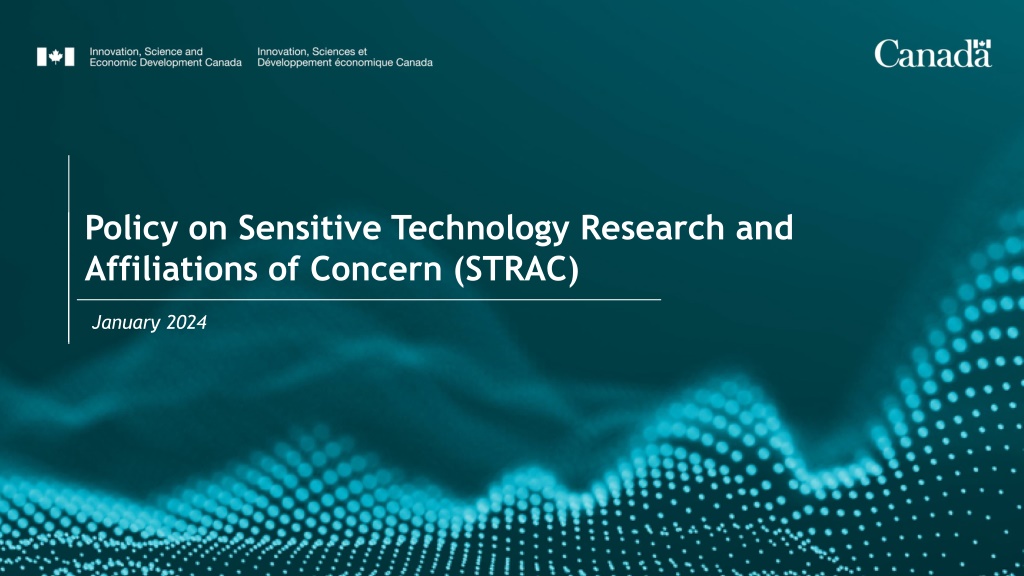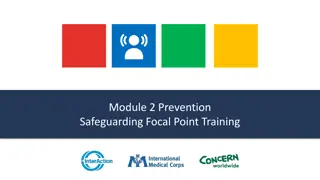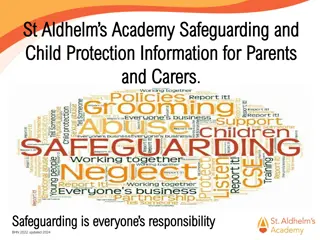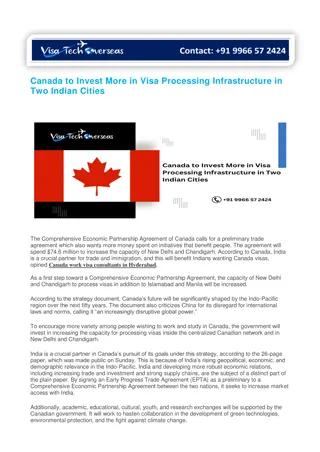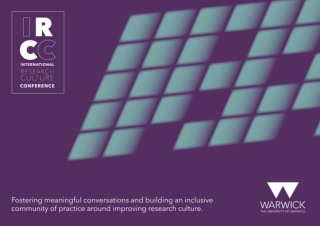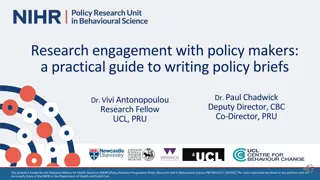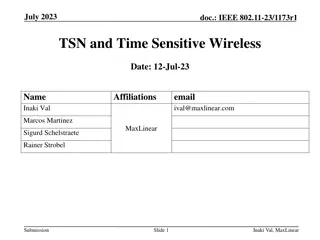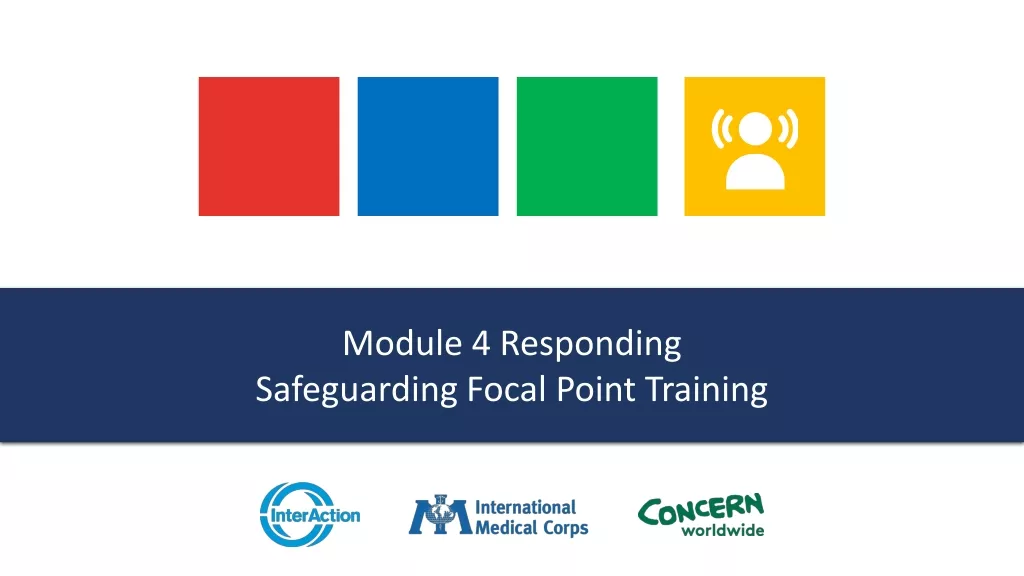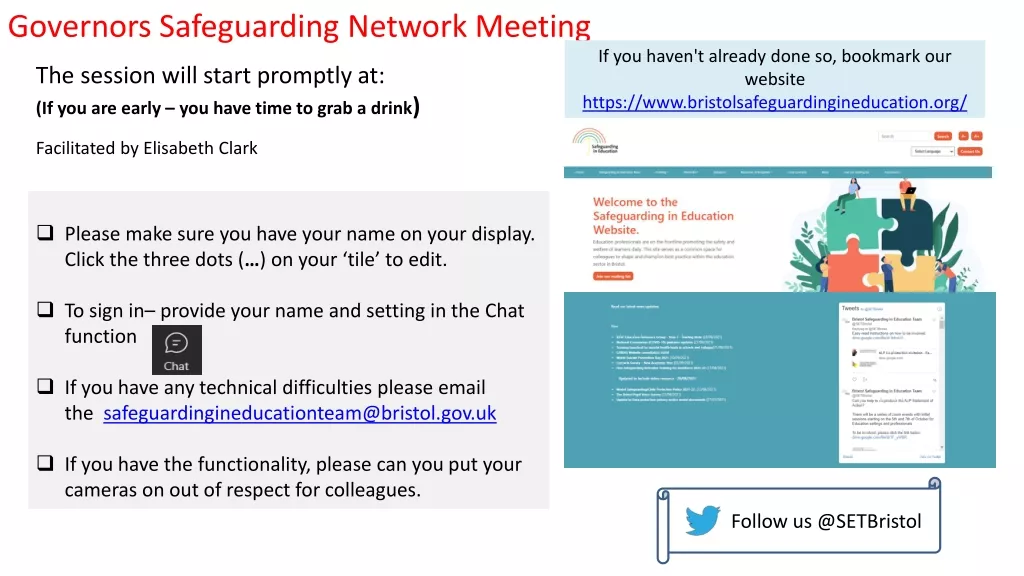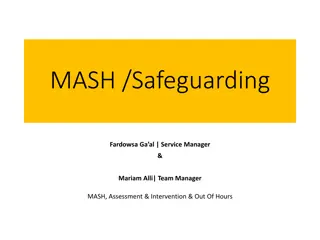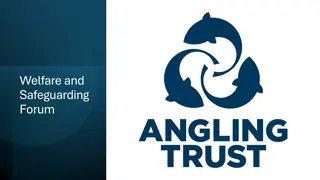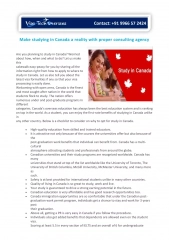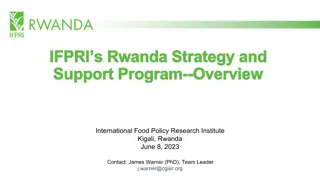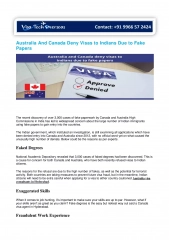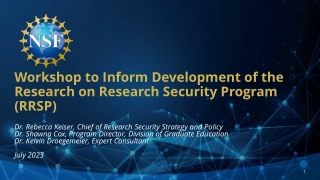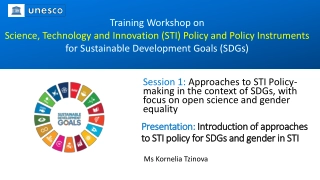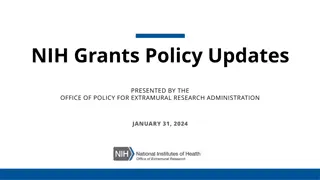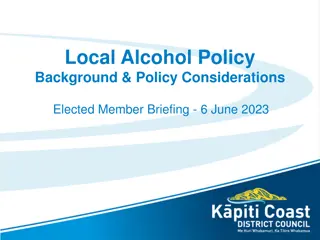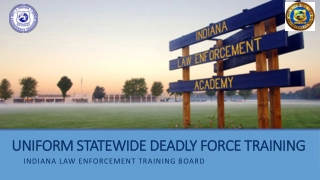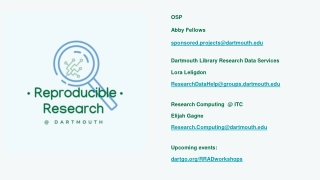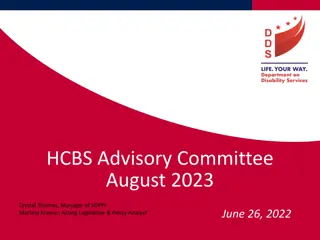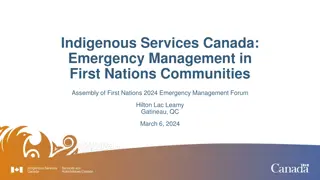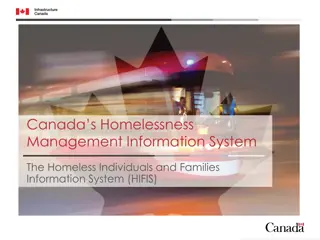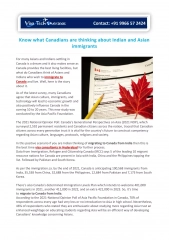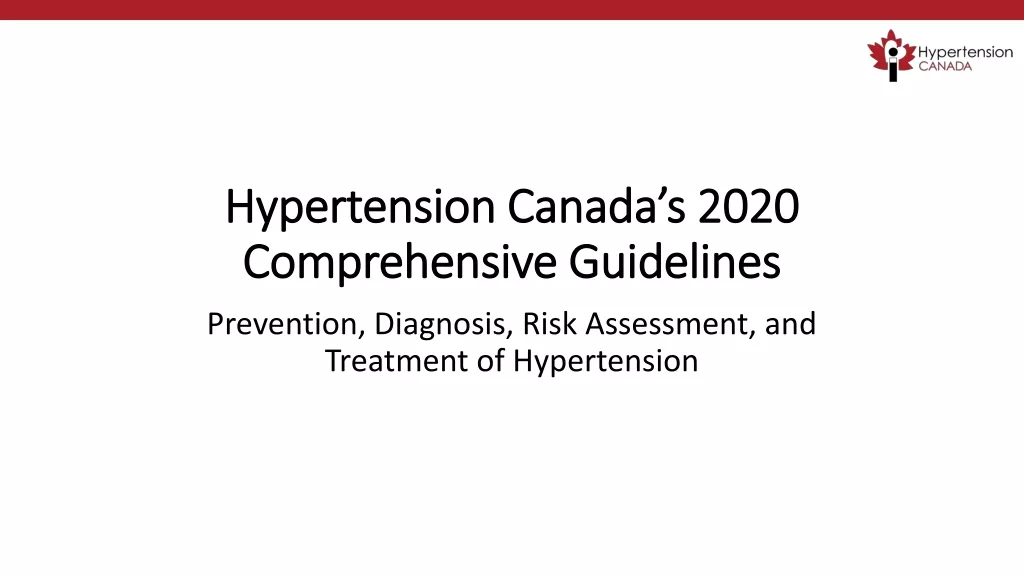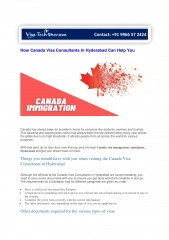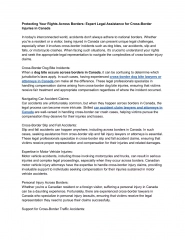Safeguarding Canada's Research: Policy on Sensitive Technology Research and Affiliations of Concern (STRAC)
Canada's new Policy on Sensitive Technology Research and Affiliations of Concern (STRAC) aims to protect the country's research ecosystem from foreign entities posing security risks. The policy restricts funding for projects involving sensitive technology research if affiliated with military or state security entities of foreign actors. Developed through consultation with the research community, the policy emphasizes transparency, collaboration, and risk-targeted science to safeguard Canada's research integrity.
Safeguarding Canada's Research: Policy on Sensitive Technology Research and Affiliations of Concern (STRAC)
PowerPoint presentation about 'Safeguarding Canada's Research: Policy on Sensitive Technology Research and Affiliations of Concern (STRAC)'. This presentation describes the topic on Canada's new Policy on Sensitive Technology Research and Affiliations of Concern (STRAC) aims to protect the country's research ecosystem from foreign entities posing security risks. The policy restricts funding for projects involving sensitive technology research if affiliated with military or state security entities of foreign actors. Developed through consultation with the research community, the policy emphasizes transparency, collaboration, and risk-targeted science to safeguard Canada's research integrity.. Download this presentation absolutely free.
Presentation Transcript
Policy on Sensitive Technology Research and Affiliations of Concern (STRAC) January 2024
SAFEGUARDING CANADAS RESEARCH Canada s world-class research ecosystem is defined by excellence and its open and collaborative nature. This openness can make it a target for unwanted transfer and use of Canadian research by foreign governments, militaries, and other actors for their own gain, which can be harmful to the security of Canada and its allies. The Government of Canada has been active in safeguarding Canada s research while keeping Canada s research ecosystem as open and collaborative as possible. Providing advice, tools and training through the Safeguarding Your Research portal and Implementing national security considerations into the development, evaluation, and funding of research partnerships through the National Security Guidelines for Research Partnerships. The Guidelines apply to all research partnerships and include mandatory assessment of research security risk, and potential referral to national security partners, for federally-funded industrial partnerships. As the risk landscape evolves, additional targeted measures are becoming necessary. There is increased concern that Canada s most strategic research may fall into the hands of those who seek to undermine our national security. That is why the government is introducing the new Policy on Sensitive Technology Research and Affiliations of Concern (STRAC) to protect Canada s research. 2
CONTEXT & DEVELOPMENT On February 14, 2023 Ministerial Statement announced the intent of the new policy. The government announced its intent to further protect our country s research, our institutions, and our intellectual property by announcing that grant applications that involve conducting research in a sensitive technology research area will not be funded if any of the researchers working on the project are affiliated with a university, research institute, or laboratory connected to military, national defence, or state security entities of foreign state actors that pose a risk to our national security. The new policy was developed in consultation with the research community. Close consultation with Canada s research community through the Government of Canada- Universities Working Group. Collaboration across relevant federal departments and agencies, including the granting agencies and the Canada Foundation for Innovation, Public Safety Canada and Global Affairs Canada. 3
PRINCIPLES Science appropriate Risk-targeted Transparent Free from Discrimination, Harassment, and Coercion Collaboration with the research community 4
POLICY ON SENSITIVE TECHNOLOGY RESEARCH AND AFFILIATIONS OF CONCERN (STRAC) The new STRAC policy will enhance Canada s research security by ensuring grant applications submitted through a university or an affiliated research institution that involve conducting research that aims to advance a sensitive technology research area will not be funded if any of the researchers involved in activities supported by the grant are affiliated with, or in receipt of funding or in-kind support, from a university, research institute or laboratory connected to military, national defence or state security entities of foreign state actors that could pose a risk to Canada s national security. 1. List of Sensitive Technology Research Areas 2. List of Named Research Organizations Two new lists will support the implementation of the STRAC: 5
TWO NEW LISTS NAMED RESEARCH ORGANIZATIONS (NRO) LIST SENSITIVE TECHNOLOGY RESEARCH AREAS (STRA) LIST Advanced and emerging technologies that may be of interest to foreign state, state-sponsored, and non-state actors that may be seeking to undermine Canada s technological advantages. Research organizations that pose the highest risk because they are connected to foreign state, state-sponsored, and non-state actors that may be seeking to undermine Canada s technological advantage. Includes technologies at various stages of development; of specific concern is the advancement of a technology during the course of the research. Beyond this list, researchers are encouraged to apply due diligence practices to mitigate risks that may be associated with any collaboration or partnership in a sensitive research area even if an institution is not included in the current list. Not intended to cover the use of any ubiquitous technology (i.e. safe and commonplace technologies). Each high-level technology category includes sub- categories with further specificity regarding the main concerns. Both lists will be updated regularly to address evolving threats to Canada s national security 6
PROCESS & COMPLIANCE .This policy applies to all grant applications submitted through a university or an affiliated research institution to the three federal granting agencies and the Canada Foundation for Innovation (CFI). Grant applicants must undergo a two-step process prior to applying for a federal grant: Step 1: Does the grant application involve work advancing a sensitive technology research area? Step 2: Are any of the researchers involved on the project affiliated with, or receiving funding or in-kind support from a university, research institution, or laboratory on the Named Research Organization List? YES YES NO NO Application is ineligible in its current form. Applicant not required to submit attestation form. Applicant required to submit an attestation. Attestation would not exclude the grant application from receiving federal funding. 7
IMPLEMENTATION APPROACH Attestation and Compliance APPLYING FOR A GRANT FOR THE DURATION OF THE GRANT When submitting grant applications in a sensitive technology research area, applicants with a named role in the grant application must attest that they are not affiliated with or in receipt of funding or in-kind support from a listed research- performing institution. Following the attestation, compliance with the policy is required for the duration of the grant. No researcher linked to a listed organization can be involved in any research activities including collaborations and co- publications supported by the grant. Grant recipients must inform the granting agency if there are substantial changes in sensitivity of the research or the composition of the research team, to ensure compliance with the policy. 8
IMPLEMENTATION APPROACH Validation of Attestations For most grants, validation of attestations will occur through a random sampling of attestations from across granting programs that will be reviewed for accuracy. Validation would occur for most grants after grant award. This will ensure no impacts to service standards for grant decisions as a result of this policy. Under specific circumstances, some applications may be referred to Public Safety Canada for an assessment. If an attestation is found to be inaccurate, there will be an assessment of whether this was a voluntary misrepresentation or reasonable error on the applicant s part. This assessment will inform the potential consequences for an incorrect attestation. Recourse will be based on the existing Tri-Agency Framework: Responsible Conduct of Research, which is the behavior expected of anyone who conducts or supports research activities throughout the life cycle of a research project and sets out the responsibilities for researchers, Institutions, and the Agencies. Breach of these responsibilities could result in the termination of current funding, reimbursement of the funds received to-date, denial of all future applications, and/or an academic integrity investigation by the applicant s employer. 9
ANNEX A Key Definitions Sensitive Technology Research Area: Areas of research listed under the Sensitive Technology Research Areas list. Researcher: Any person conducting research. For the purposes of federal funding applications, researchers can hold different roles, such as applicants, co-applicants, collaborators, and highly qualified personnel. Activities supported by the grant: Any contribution to research related to the funded grant and throughout the lifecycle of the research project(s), up to and including the dissemination of research results. Affiliation: Any organizations at which an individual is employed, appointed, or conducts research. Funding or in-kind support: Monetary or non-monetary contributions, that include but are not limited to goods, equipment, materials and supplies, professional services, use of facilities, software, technologies and databases. Entities that pose a risk to national security: Defined by the List Named Research Organizations connected to the security or defence apparatus of foreign actors that may pose a risk to Canada s national security 10
